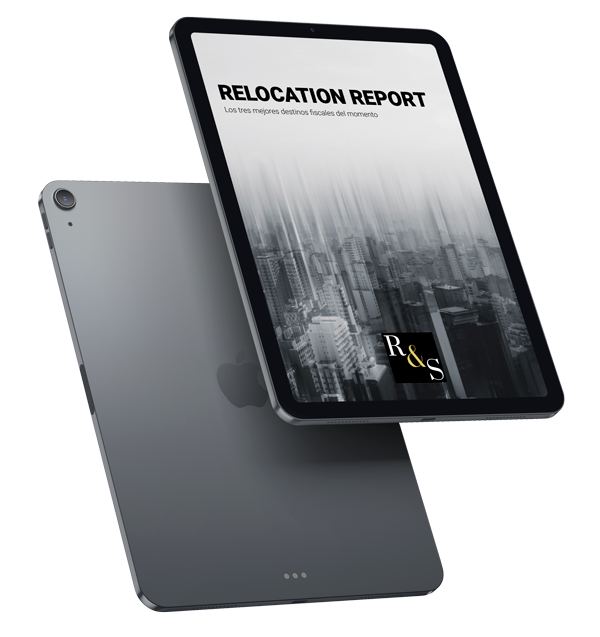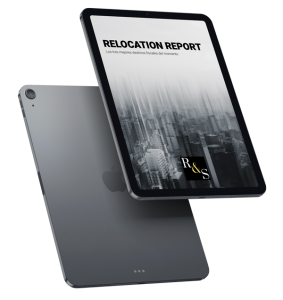Very often we receive inquiries from people interested in incorporating companies in Estonia to pay less tax, especially from digital entrepreneurs. And most of them come to us after having heard about this option from what we call in the industry a “layman”, i.e. a non-professional in international taxation.
Clients come after hearing that Estonia is a “loophole”, a magical place where entrepreneurs can set up a limited company where they can stop paying taxes without having to physically live there, because anything can be done online through the famous e-residency.
Is it so easy to incorporate a company in Estonia and avoid paying taxes?
Contrary to what you may believe, it is a big mistake to set up a company in Estonia and start invoicing from there while still living in, for example, Madrid.
Unless you reside in countries with territorial taxation (mainly Southeast Asia, preferential regimes or remote islands), the principles of international taxation do not recognize e-residency. Much more important are concepts such as “effective seat of management”, “economic substance”, CFC rules or international tax transparency, all of which discourage options such as Estonian.
In other words, if your idea is to continue living in (and operating from) your country of residence you should not incorporate in Estonia.
But all this does not mean that you should totally rule out the Estonian option, the advantages of which we will explain below. Also, at the end of this guide, we will discuss other alternatives for the digital entrepreneur profile to reduce your tax bill.
How would you save taxes in Estonia?
If you are determined to reside in Estonia, this country certainly has many facilities for this.
Estonia is considered the first “digital country” in the world for many reasons. Most of the state is digitized: education, immigration, bureaucracy, healthcare, banking system, etc., which is estimated to save Estonia 2% of its annual GDP in salaries and expenses.
This means that you can get your residency completely online, incorporate a company in 24 hours from your home country, obtain a bank account, carry out bureaucratic procedures…. Practically everything from your cell phone. Attractive, isn’t it?
In addition to being a kind of Baltic Silicon Valley, Estonia has another great advantage: its liberal tax system.
Its corporate income tax is one of the most attractive in the European Union, not only because of its low effective taxation but also because of its simplicity and easy operation. The state only taxes the company’s profits at 20% when they are distributed to its shareholders and, therefore, not when they are reinvested in the company or are recorded as pending distribution.

Additionally, companies can offset taxes owed on their presently distributed profits against both their past losses and their future losses. And how does this work? Well, if the company suffers losses in the future and paid taxes on profits in the past, the taxes paid are refunded until the negative tax bases are offset. That is to say, the state helps the businessman when he has losses at the same time that it benefits when he has profits.
As for the Personal Income Tax for those who decide to reside in Estonia, it is also very simple, a single tax rate of 20%, i.e., every individual in the country will pay the same nominal rate. While there are exemptions for low salaries, unlike many tax havens or low tax havens Estonia does not enjoy notable exemptions or deductions for real estate capital income, so holding investment portfolios in Estonia is not as attractive as under non-doms or international taxation.
For whom is it ideal to start up from Estonia?
For digital entrepreneurs and digital nomads. And who do we refer to as such?
- Startups that have founding members with primary functions determined to move their activity to Estonia as a manager of the Company (software developers, growth managers, CEO, COO, etc). This way, if a manager is in Estonia, the company could end up paying taxes in Estonia, even though part of the team (less primary) still resides in Spain, Mexico, Argentina, etc.
- Digital nomad: entrepreneur or content creator in the digital world who wants to reside in Estonia or spends most of his time traveling without being tax stateless.
I digress regarding the latter: it is sometimes incorrectly commented that being a digital nomad can lead you to pay no taxes in any country or to do so in countries where you have almost no presence (no office, nothing like that).
Whoever believes this is because they have never encountered an inspection by the tax authorities: if you want to live in Estonia, we recommend that “your home” and “your company” are in Estonia and this is the country where you live the most days during the year.
If you spend most of the year traveling around the world… Doesn’t it seem strange that the tax authority in your home country accepts that you pay taxes in Estonia if you are practically not there? Take what you read on the internet about e-residencies with a grain of salt.
- Self-employed consultant: if you bill hundreds of thousands of euros and have no reluctance to move, why continue to pay almost 50% tax in your home country? In Estonia you could pay 0% tax and at most 20%.
- Executives operating in the Baltic countries or “CIS countries” (Russia, Belarus, Kazakhstan, etc). Tallinn can be a very good base of operations with really attractive taxes.
Is this option viable from Spain or Latin America?
We insist: this option is perfectly viable as long as you are determined to move to Estonia yourself or part of your team.
To secure paying taxes in Estonia we recommend to have a real address there or an office. Paying a few euros for a mailbox or a mailing address will seem expensive in the long run when you have to face an inspection by the tax authorities.
So is it easy to reside in Estonia?
As e-residency is so attractive, you will find dozens of websites and advisors selling you this service at very low prices. From Relocate&Save we believe that in tax matters cheap is expensive.
The Baltic jurisdictions have a very different way of operating than the Latin ones, so it is necessary to have a local partner who cares about you and does not end up bringing problems to your residence of origin.
In addition, many of the cheap and easy banks advertised on the internet are banks with very bad credit or ratings, which end up reaching your ears because they pay hefty referral fees to those who recommend them. Besides, with all the money laundering scandals Estonia has had, would you put all your company’s money in a “cheap” bank?
Be wary of the extremely cheap and those that ask for almost no documentation to open your company or bank account….. There is a chance that you may end up sharing “tax headquarters” with criminals.
What alternatives to Estonia are there?
If you are seriously interested in changing your tax residence, we recommend you to download for free and read our updated report “The three best tax destinations of the moment.”






